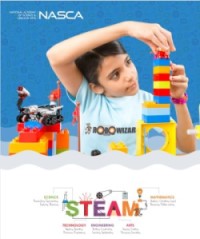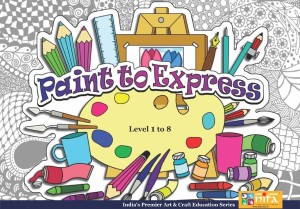We are currently preparing students for jobs that don’t yet exist … using technologies that haven’t been invented … in order to solve problems we don’t even know are problems yet.”
Richard Riley, former US Secretary of Education
This quote could not further from the truth. As we see the way technology is shaping the world, these words ring truer than ever. When we see our students studying vigorously for their exams, one can’t help but wonder whether learning is going to make them industry-ready in all aspects – not just academics.
By 2020, India will have the world’s largest young workforce. How many of them are employable? How many are getting into fields they actually enjoy and are good at? And how many are simply selecting a path that’s ‘secure’ or ‘financially beneficial’ in the long run?
For years, we’ve been prioritizing stability and security over interests when it comes to choosing a career. Up until a few years ago, the career you chose wasn’t likely to evolve at the frenzied pace it is currently going through. Today, the Technological Revolution is well underway and changing the way we approach jobs. A study by the World Economic Forum revealed that by 2022, nearly one-fifth of the world’s workforce will feel the impact of AI-related advancements in their workplace. Does it still make sense to prioritise ‘stability’ over interests, when just about every career could drastically transform thanks to technological advancements?
For students to be prepared to enter the future workforce, they must have a deep understanding of and be able to apply content knowledge. There is no doubt that academic content knowledge is part of a recipe for success. But information on its own will not be enough to help young adults successfully navigate and succeed in an ever-changing work landscape.
We hear all the time about the ‘skills gap,’ the gap between the skills needed to succeed in the professional world and the skills with which young professionals leave college. Data shows that even though their education may make recent college graduates feel prepared to enter the workforce, only half of the hiring managers agree with them; managers feel crucial skills in recent graduates are frequently lacking or absent.
Take management education in India for example. There are 5,500 MBA colleges in India churning out 2 lakh students every year. However, how many of them are employable? Check this out:
- In 2019, the employability amongst MBA graduates further dropped by 3 percentage points over last year, to 43%. It seems that with the exponential increase in the number of MBA colleges, the quality of talent is seen to be declining. – ‘India Skills Report’, a joint initiative of the All India Council for Technical Education (AICTE) and Association of Indian Universities (AIU) along with Wheebox, PeopleStrong and Confederation of Indian Industry (CII)
- Just 44 percent of MBA students got campus placements – AICTA
- 92 percent of MBA graduates are unemployable. Only seven percent of MBA students got jobs immediately after passing the course. The bottom 2,000 of about 5,500 MBA colleges in India are unable to find placement for even 15 percent of their MBAs. – ASSOCHAM report.
The story is similar for engineering graduates. The new Annual Employability Survey 2019 report by Aspiring Minds reveals that 80 percent of Indian engineers are not fit for any job in the knowledge economy and only 2.5 percent of them possess tech skills in Artificial Intelligence (AI) that industry requires.
Add to this scenario the fact that many jobs will either get obsolete soon or will be taken over by robots and AI.
The future looks interesting and at the same intriguing, considering the changes happening across industry verticals. More emphasis is being given to renewable energy, green computing, Machine Learning, Artificial Intelligence, Internet of Things, Robotics, etc., impacting every industry including manufacturing, health care, financial services, computing & analytics, logistics, infrastructure, commerce and even each of our own pedestrian needs.
Every industry is facing technological disruption. For instance, Ola and Uber don’t own any vehicle, Airbnb doesn’t own any hotel or rooms, the largest retailers like Amazon and Flipkart don’t own any stores! In effect, the way an enterprise is being built and modeled is witnessing huge changes and hence exposure and understanding of these changes have assumed paramount importance.
Ten years back, we hadn’t heard of Instagram. Today, new careers and industries have spawned in the field of social media. And they pay well too.
Where does this leave the student of today? Is it enough and prudent therefore to study a syllabus that has been written years back and that is not as relevant today – both in terms of course content and soft skills training?
Says Pramod Srinivas, Founder, The Global Indian School (TGIS), “Children can be divided into four groups – Kinesthetic, linguistic, audio-visual and spatial, based on which they can be provided with differentiated worksheets gradually bringing them to one level. While we would not want to encourage mediocrity, the idea is to ensure class disparity is not too high.”
Of course, there are many schools that are aware of this development and while constricted by government regulations are creating their own modules and methodologies to impart an education to make their students ready.
That’s a minority, however. The need of the hour is for all stakeholders – government, boards, and school managements – to decide on a path that’s a win-win for all concerned. Says P C Balasubramanian, Managing Director, and CEO, Matrix Business Services India, “Corporates can do a lot as regards building strong future-ready students by partnering and mentoring the schools across the country. The National Skills Development Corporation, India along with large corporates from various industries could add significant value in the development of the skills. This is how a private-public partnership may work well for the nation.”
Else, we may find an MBA-like scenario – a mass churn-out of graduates who pay exorbitant fees only to find themselves woefully inadequate to face the industry.


















